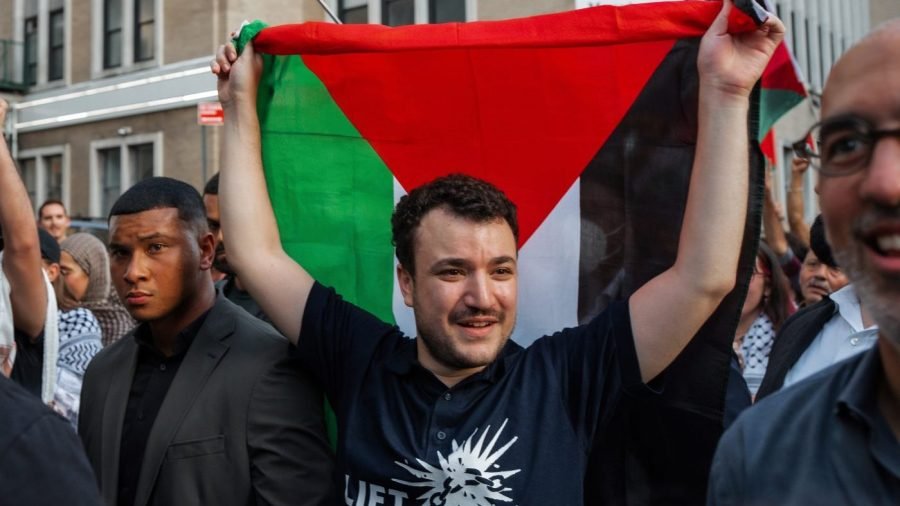
An important feature of our legal system is that Supreme Court decisions do not expire. The principles they establish require deference and compliance, even when they seem out of date. Until modified or overturned, Supreme Court rulings must be obeyed and should not be undermined by neglect.
Nevertheless, that is what is happening to Brandenburg v. Ohio (1969), a landmark First Amendment case. Although it involves fundamental rights that are directly related to contemporary issues, the case has been overlooked by commentators, legislators, lawyers and even judges.
If Brandenburg’s value was understood, those facing prosecution or deportation for their public statements — such as Mahmoud Khalil, the Columbia University student targeted by the Trump administration — could have relied on the First Amendment to protect them.
Clarence Brandenburg was a member of a Ku Klux Klan chapter in Ohio. Someone from the group contacted a television station to invite a film crew to their rally on a farm. The reporter and crew found a dozen people in KKK robes, but no one else.
The speakers offered the usual racist and antisemitic statements common at such events, but what interested the Supreme Court was Brandenburg’s statement, which aired on the news: “We’re not a revengent organization, but if our president, our Congress, our Supreme Court, continues to suppress the white, Caucasian race, it’s possible that there might have to be some revengeance taken.”
There was no evidence that Brandenburg’s words had any effect. He did not urge anyone to obtain weapons and kill innocent people or drive a vehicle into a crowd. Compared to the inflammatory statements in other speech cases, Brandenburg’s comments were unthreatening and uninspiring.
Brandenburg was prosecuted under the Ohio Syndicalism Act of 1919, enacted during the Red Scare following World War I. Similar laws were adopted by 20 other states. He was convicted, fined $1,000 and sentenced to one to 10 years in prison. Ohio judges thought so little of the case that the appellate court affirmed his conviction without opinion, and the Ohio Supreme Court dismissed the appeal because “no substantial constitutional question exists.”
In unanimously overturning Brandenburg’s conviction, the U.S. Supreme Court held that “the constitutional guarantees of free speech and free press do not permit a state to forbid or proscribe advocacy of the use of force or of law violation except where such advocacy is directed to inciting or producing imminent lawless action and is likely to incite or produce such action.”
When the court used the phrases “directed to inciting” and “is likely to incite or produce such action,” it raised a critical question: How does one know that the speech is likely to “incite or produce such [lawless] action” unless it actually does?
If a speech directly incites an unlawful act, the conviction would be upheld. But if it has no impact, it obviously was not likely to cause such action.
Brandenburg suggests that three elements are required for prosecution of potentially dangerous speech: the person specifically encouraged unlawful action; someone who heard or read the speech took such action; and the act could be directly traced to the speech. Thus, if not for the spoken or written words, there would have been no unlawful act.
This standard should have protected Khalil, the Columbia graduate from Syria, who is a green card holder and thus a legal U.S. resident. During campus protests over the treatment of Palestinians by Israel in Gaza, Khalil was a negotiator between the students and the university and a spokesperson for some demonstrators.
Immigration and Customs Enforcement agents arrested Khalil on March 8, accusing him of leading “activities aligned to Hamas, a designated terrorist organization.” He was sent to the ICE detention facility in Louisiana.
The White House claimed that Khalil helped organize protests where pro-Hamas propaganda was distributed and accused him of “siding with pro-terrorist organizations.” He has not been charged with any crime. His lawyer said there is no evidence that Khalil provided support to a terrorist organization.
Judge Michael Farbiarz of the federal district court in New Jersey issued a 106-page opinion on May 28 blocking the Trump administration from deporting Khalil. The judge focused on whether Section 1227 of the Immigration and Nationality Act of 1952 requires the Secretary of State to identify how Khalil’s presence would have potentially serious adverse foreign policy consequences. Instead, Secretary of State Marco Rubio simply reached that conclusion without evidence.
Judge Farbiarz ruled that Khalil was entitled to constitutional protection even though he is not a citizen and decided that Section 1227 was “unconstitutionally vague.” The judge also recognized that the case involved First Amendment rights.
His detailed opinion mentions the First Amendment 35 times and either cites or briefly discusses more than 30 First Amendment cases. But he does not include Brandenburg.
Khalil’s statements fell far short of Brandenburg’s requirement that a speaker had to incite an unlawful act that was directly connected to the speech for someone to lose First Amendment protection. It did not matter whether Khalil’s involvement inspired demonstrations or the distribution of anti-Israel propaganda.
On June 11, the judge ruled that the government could no longer hold Khalil, but he did not order his release. His 14-page opinion cited free speech rights 16 times but, once again, did not mention Brandenburg.
The government then changed its reason for holding Khalil and said he was being investigated for misrepresenting his work history when seeking legal residency. Judge Farbiarz determined that was an excuse to punish Khalil for his speech, because lawful residents who have not committed crimes are almost never detained while the government reexamines a green card application.
The judge said that holding Khalil under such circumstances was “highly, highly, highly unusual” and was intended to punish speech. “And, of course, that would be unconstitutional,” the judge added, and he ordered Khalil’s release.
On June 20, after more than three months in custody, Khalil was freed. The government immediately appealed.
The lessons of Brandenburg — and other cases that elevated the First Amendment to a “preferred position” in our constitutional system — are that we must tolerate disturbing and even hateful speech so that we can freely discuss public issues. The enduring principles that the Supreme Court recognized in Brandenburg should be dusted off and treated with the reverence they deserve.
Richard Labunski, Ph.D., J.D., is a retired journalism professor and author of “James Madison and the Struggle for the Bill of Rights.”






